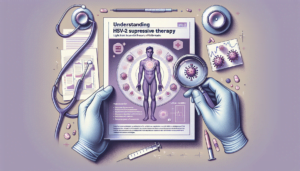Have you ever wondered what exactly insulin resistance is? In simple terms, it’s a condition where your body’s cells become resistant to the effects of insulin, leading to an imbalance in blood sugar levels. This article will shed light on this common yet often misunderstood condition, explaining why it occurs and the potential consequences it can have on your overall health. So, buckle up and get ready to uncover the mysteries of insulin resistance and its impact on your wellbeing.

Understanding Insulin Resistance
Insulin resistance is a condition where your body becomes less responsive to the effects of insulin, a hormone that plays a vital role in regulating your blood sugar levels. When you have insulin resistance, your body struggles to efficiently use insulin, which can lead to high blood sugar levels and potential long-term health complications. It is an increasingly prevalent condition that affects millions of people worldwide.
Definition of Insulin Resistance
Insulin resistance refers to the impaired ability of your body’s cells to effectively respond to insulin. Insulin is produced by the pancreas and helps transport glucose from the bloodstream into your cells to be used as energy. When you are insulin resistant, your cells become less responsive to the signals of insulin, resulting in elevated levels of glucose in your bloodstream.
Causes of Insulin Resistance
Insulin resistance can occur due to a variety of factors, including genetic predisposition, poor lifestyle choices, and certain medical conditions. One of the primary causes is excessive fat accumulation, especially around the abdomen. This excess fat can interfere with insulin signaling and decrease insulin sensitivity. Additionally, a sedentary lifestyle, poor diet, chronic inflammation, and hormonal imbalances can contribute to the development of insulin resistance.
Risk Factors for Insulin Resistance
While insulin resistance can affect anyone, certain factors increase your risk of developing this condition. These include being overweight or obese, having a family history of type 2 diabetes or insulin resistance, leading a sedentary lifestyle, consuming a diet high in processed foods and sugar, experiencing chronic stress, and having polycystic ovary syndrome (PCOS).
Signs and Symptoms of Insulin Resistance
In the early stages, insulin resistance may not cause noticeable symptoms. However, as the condition progresses, you may experience symptoms such as frequent urination, increased thirst, fatigue, difficulty losing weight, cravings for sugary foods, and darkened patches of skin, known as acanthosis nigricans. It is important to note that these symptoms can also occur in other health conditions, so it is best to consult with a healthcare professional for an accurate diagnosis.
Effects of Insulin Resistance
Insulin resistance can have significant effects on various aspects of your health. Understanding these effects is crucial to managing the condition effectively.
Impact on Blood Sugar Levels
The primary consequence of insulin resistance is elevated blood sugar levels. With decreased insulin sensitivity, your body struggles to efficiently transport glucose from the bloodstream into the cells. This can lead to hyperglycemia, a state of persistently high blood sugar. Over time, high blood sugar levels can damage blood vessels and organs, increasing the risk of developing type 2 diabetes.
Effect on Weight and Metabolism
Insulin resistance is often associated with weight gain and difficulty in losing weight. The excess insulin in your bloodstream, resulting from your body’s compensatory efforts to overcome insulin resistance, can promote the storage of fat and inhibit the breakdown of stored fat. This can lead to increased body fat percentage and metabolic dysregulation, contributing to further insulin resistance and a vicious cycle of weight gain.
Link to Chronic Conditions
Insulin resistance is closely connected to various chronic health conditions. Research has shown that it significantly increases the risk of developing type 2 diabetes, cardiovascular diseases, such as heart disease and stroke, hypertension (high blood pressure), and non-alcoholic fatty liver disease. Insulin resistance is also commonly associated with polycystic ovary syndrome (PCOS) in women, leading to hormonal imbalances and reproductive difficulties.
Influence on Hormonal Health
Insulin resistance can disrupt hormonal balance in your body. It can affect the production and regulation of hormones such as estrogen, progesterone, testosterone, and cortisol. In women, insulin resistance can contribute to irregular menstrual cycles, PCOS, and fertility issues. In men, it may lead to low testosterone levels, reduced libido, and erectile dysfunction. Hormonal imbalances can further exacerbate insulin resistance, creating a challenging cycle to break.
Diagnosing Insulin Resistance
Diagnosing insulin resistance typically involves a combination of physical examination, medical history review, and specific blood tests. An accurate diagnosis is crucial to commence appropriate treatment strategies and prevent further complications.
Physical Examination and Medical History
Your healthcare provider will assess your risk factors, symptoms, and overall health during a physical examination and review of your medical history. They may inquire about lifestyle habits, family history of diabetes or insulin resistance, and any related symptoms you have been experiencing. This information helps guide further diagnostic measures.
Blood Tests to Measure Insulin Levels
Measuring insulin levels in the blood can provide valuable insights into your body’s insulin resistance. Two commonly used tests for this purpose are fasting insulin and C-peptide tests. Fasting insulin measures the amount of insulin present in your blood after an overnight fast, while C-peptide assesses the amount of a protein fragment released when insulin is produced. These tests help determine if your body is producing enough insulin or if there is resistance in its action.
Glucose Tolerance Test
A glucose tolerance test (GTT) is another diagnostic tool used to assess your body’s response to glucose. This test involves consuming a sugary drink, and blood samples are taken at specific intervals to measure blood glucose levels. It provides information about how efficiently your body can process and clear glucose from your bloodstream. Impaired glucose tolerance during this test can indicate insulin resistance.
HbA1c Test for Long-Term Blood Sugar Control
The HbA1c test measures the average blood sugar levels over the past two to three months. It provides insights into your long-term blood sugar control and the risk of developing complications associated with diabetes. While it is not a direct measure of insulin resistance, an elevated HbA1c level indicates the need for further investigation into possible insulin resistance.

Treatment and Management of Insulin Resistance
Managing insulin resistance involves a multifaceted approach that focuses on lifestyle modifications, healthy eating, regular exercise, and, in some cases, medications. It is essential to work closely with your healthcare provider to develop an individualized treatment plan tailored to your specific needs.
Lifestyle Modifications
Making lifestyle modifications is often the first line of defense against insulin resistance. These include maintaining a healthy weight, losing excess weight if necessary, adopting a balanced and nutritious diet, engaging in regular physical activity, managing stress levels, and getting adequate sleep. These lifestyle changes can significantly improve insulin sensitivity and overall health.
Healthy Eating Plan
A healthy eating plan for managing insulin resistance typically involves consuming a balanced combination of complex carbohydrates, lean proteins, healthy fats, and high-fiber foods. It is important to focus on whole foods and minimize the intake of processed and sugary foods. Portion control and regular meal timing can also play a role in managing blood sugar levels.
Importance of Regular Exercise
Regular exercise is a critical component in managing insulin resistance. Engaging in aerobic exercises, such as brisk walking, cycling, or swimming, and incorporating resistance training can help improve insulin sensitivity, promote weight loss, and enhance overall metabolic health. Aim for at least 150 minutes of moderate-intensity exercise or 75 minutes of vigorous exercise per week, as recommended by healthcare professionals.
Medications for Insulin Resistance
In some cases, medications may be prescribed to manage insulin resistance. These medications, such as metformin, thiazolidinediones, and incretin mimetics, work by improving insulin sensitivity, reducing glucose production in the liver, and enhancing the release of insulin from the pancreas. It is important to work closely with your healthcare provider to determine the most appropriate medication and monitor their effectiveness.
Prevention of Insulin Resistance
While insulin resistance cannot always be prevented, certain lifestyle habits and choices can significantly reduce your risk of developing this condition.
Maintaining a Healthy Weight
Maintaining a healthy weight is crucial in preventing insulin resistance, as excess weight, especially around the abdomen, is strongly associated with insulin resistance. Optimal weight management involves a combination of regular physical activity, a balanced diet, portion control, and healthy lifestyle habits.
Balancing Blood Sugar Levels
Adopting healthy eating habits is essential in maintaining balanced blood sugar levels. This includes limiting the intake of sugary foods and refined carbohydrates, choosing whole foods rich in fiber, and practicing portion control. Regularly monitoring your blood sugar levels and seeking guidance from healthcare professionals can also help in preventing insulin resistance.
Stress Management Techniques
Chronic stress can contribute to insulin resistance by increasing cortisol levels and disrupting hormonal balance. Therefore, incorporating stress management techniques, such as mindfulness meditation, deep breathing exercises, yoga, and engaging in activities you enjoy, can help mitigate the impact of stress on your overall health.
Regular Physical Activity
Engaging in regular physical activity is not only crucial in managing insulin resistance but also in preventing its development. Making exercise a regular part of your routine promotes weight management, improves insulin sensitivity, and benefits your overall cardiovascular health. Aim for a combination of aerobic exercises and strength training to reap the maximum benefits.
Complications Associated with Insulin Resistance
Insulin resistance increases the risk of developing various complications, some of which can have profound impacts on your overall health and well-being.
Development of Type 2 Diabetes
Insulin resistance is a significant risk factor for the development of type 2 diabetes. When insulin resistance progresses, the pancreas may struggle to produce enough insulin to overcome it. This can eventually lead to elevated blood sugar levels and the development of diabetes. It is crucial to manage insulin resistance effectively to prevent its progression to type 2 diabetes.
Increased Risk of Heart Disease
Insulin resistance is closely linked to an increased risk of heart disease and other cardiovascular conditions. The elevated levels of insulin and blood sugar associated with insulin resistance can lead to the accumulation of plaque in the arteries, potentially resulting in heart attacks, strokes, and other cardiovascular events. Implementing lifestyle modifications and closely monitoring cardiovascular health markers are essential to mitigate this risk.
Hypertension and High Blood Pressure
Insulin resistance also contributes to the development of hypertension, or high blood pressure. Elevated insulin levels and impaired glucose regulation can damage the blood vessels and lead to restricted blood flow, increasing blood pressure. Proper management of insulin resistance can help prevent or manage hypertension and ultimately reduce the risk of cardiovascular complications.
Polycystic Ovary Syndrome (PCOS)
Insulin resistance is strongly associated with polycystic ovary syndrome (PCOS) in women. PCOS is a hormonal disorder characterized by irregular menstrual cycles, ovarian cysts, and often, difficulties with fertility. Insulin resistance plays a crucial role in the hormonal imbalances observed in PCOS. Managing insulin resistance is a key aspect of managing PCOS symptoms and improving reproductive health.
Insulin Resistance in Children and Adolescents
Insulin resistance is not limited to adults and can also affect children and adolescents. The causes and impacts of insulin resistance in this age group differ slightly from adults.
Causes and Risk Factors
In children and adolescents, insulin resistance is often associated with obesity, a sedentary lifestyle, poor dietary choices, and genetic factors. Excessive weight gain and unhealthy lifestyle habits can lead to insulin resistance at a young age, setting the stage for potential long-term health complications.
Impact on Growth and Development
Insulin resistance can have detrimental effects on the growth and development of children and adolescents. It can disrupt the normal hormonal balance and interfere with the physiological changes that occur during puberty. This can lead to complications such as delayed growth and maturation, irregular periods, and compromised bone health.
Screening and Management Strategies
Early screening and intervention play crucial roles in managing insulin resistance in children and adolescents. Routine health check-ups, monitoring of weight and body mass index (BMI), and regular blood tests are essential to identify insulin resistance at an early stage. Implementing lifestyle modifications, such as encouraging physical activity, promoting healthy eating habits, and addressing underlying risk factors, is key to managing insulin resistance in this age group.
Insulin Sensitizers and their Role in Insulin Resistance
Insulin sensitizers are a class of medications that help improve insulin sensitivity and assist in managing insulin resistance effectively.
Overview of Insulin Sensitizers
Insulin sensitizers work by targeting specific mechanisms in the body to enhance insulin action and improve glucose utilization. They can help lower blood sugar levels and reduce the negative impacts associated with insulin resistance. These medications are often prescribed in conjunction with lifestyle modifications to optimize insulin sensitivity.
Commonly Prescribed Medications
Metformin, a widely used medication for diabetes management, is commonly prescribed as an insulin sensitizer in insulin resistance cases. Other medications such as thiazolidinediones, which help reduce insulin resistance, and incretin mimetics, which enhance insulin secretion, may also be prescribed based on individual needs and considerations.
Benefits and Side Effects
Insulin sensitizers can have several benefits when used appropriately. They can help regulate blood sugar levels, improve insulin sensitivity, promote weight loss, regulate hormonal imbalances, and reduce the risk of type 2 diabetes development. However, like any medication, they may also have side effects, ranging from mild gastrointestinal symptoms to more serious complications. It is crucial to work closely with your healthcare provider to determine the most suitable insulin sensitizer and monitor any potential side effects.
Potential Complications during Pregnancy
Insulin resistance during pregnancy can have significant implications for both the mother and the developing baby. Understanding these potential complications is vital for proper management and prevention.
Gestational Diabetes and Insulin Resistance
Gestational diabetes is a type of diabetes that occurs during pregnancy and is characterized by elevated blood sugar levels. It is often associated with insulin resistance, as the hormonal changes during pregnancy can affect insulin sensitivity. Gestational diabetes can increase the risk of birth complications and may also predispose both the mother and the baby to developing type 2 diabetes later in life.
Effects on the Mother and Baby
Uncontrolled insulin resistance and gestational diabetes can have various effects on the mother and the baby. In the mother, it can lead to preeclampsia, a condition characterized by high blood pressure and organ damage. It can also increase the risk of needing a cesarean section and lead to long-term health complications. For the baby, the increased glucose levels can result in excessive growth, macrosomia, respiratory distress, low blood sugar after birth, and an increased risk of obesity and type 2 diabetes later in life.
Management and Prevention Strategies
Proper management of insulin resistance during pregnancy involves close monitoring of blood sugar levels, implementing dietary changes, regular exercise, and, in some cases, medications to regulate blood sugar. It is important for pregnant individuals to work closely with their healthcare team to ensure optimal glucose control and reduce the risk of complications. Preconception planning and managing insulin resistance even before pregnancy can also help minimize the risks associated with gestational diabetes.
Research and Advances in Insulin Resistance
Research in the field of insulin resistance is ongoing, with scientists continuously looking for new insights and better treatment approaches.
Latest Studies and Findings
Researchers are exploring the complex mechanisms underlying insulin resistance, investigating genetic factors, cellular processes, and molecular pathways involved in its development. Recent studies have shed light on the role of gut microbiota in insulin resistance, potential therapeutic targets, and the impact of circadian rhythms on metabolic health. These findings provide hope for novel interventions and better management strategies.
Emerging Treatment Approaches
Advances in understanding insulin resistance have paved the way for the development of innovative treatment approaches. Precision medicine, which involves tailoring treatment strategies based on an individual’s genetics and specific metabolic characteristics, holds promise in optimizing insulin sensitivity. Additionally, research into targeted therapies and lifestyle interventions is ongoing to identify effective ways to combat insulin resistance.
Potential Therapeutic Targets
Scientists are exploring various therapeutic targets in insulin resistance, aiming to develop targeted drugs that can improve insulin sensitivity and prevent or manage the associated complications. These include targets related to cellular metabolism, hormonal regulation, and inflammation. By identifying specific molecules and pathways, researchers hope to provide more effective treatments for individuals with insulin resistance.
In conclusion, understanding insulin resistance is crucial for better management and prevention of this condition. It affects various aspects of health, from blood sugar regulation to hormonal balance. Diagnosing insulin resistance involves a combination of physical examination and specific blood tests. Treatment and management focus on lifestyle modifications, healthy eating, regular exercise, and, when necessary, medications. Preventive measures such as maintaining a healthy weight and balancing blood sugar levels are essential. Insulin resistance can lead to various complications, including the development of type 2 diabetes and increased risk of heart disease, hypertension, and PCOS. It can also impact children and adolescents and poses unique challenges during pregnancy. Insulin sensitizers play a role in managing insulin resistance, and ongoing research provides hope for further advances in treatment. By staying informed and proactive, individuals can effectively manage insulin resistance and optimize their overall health and well-being.


